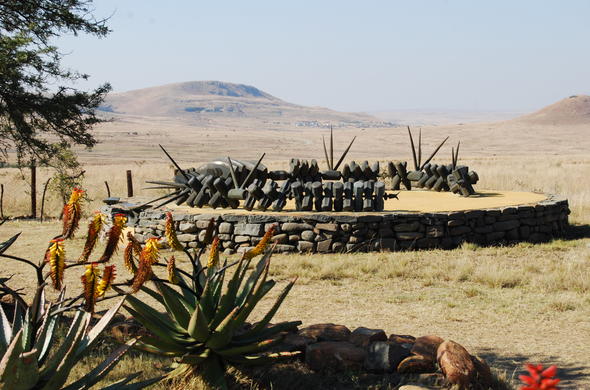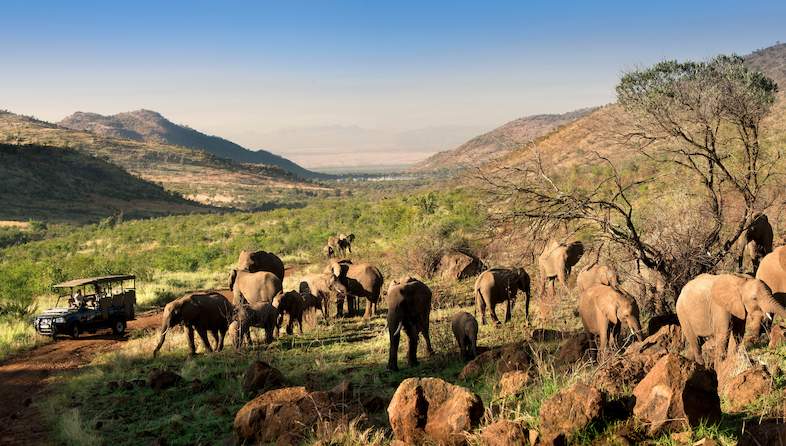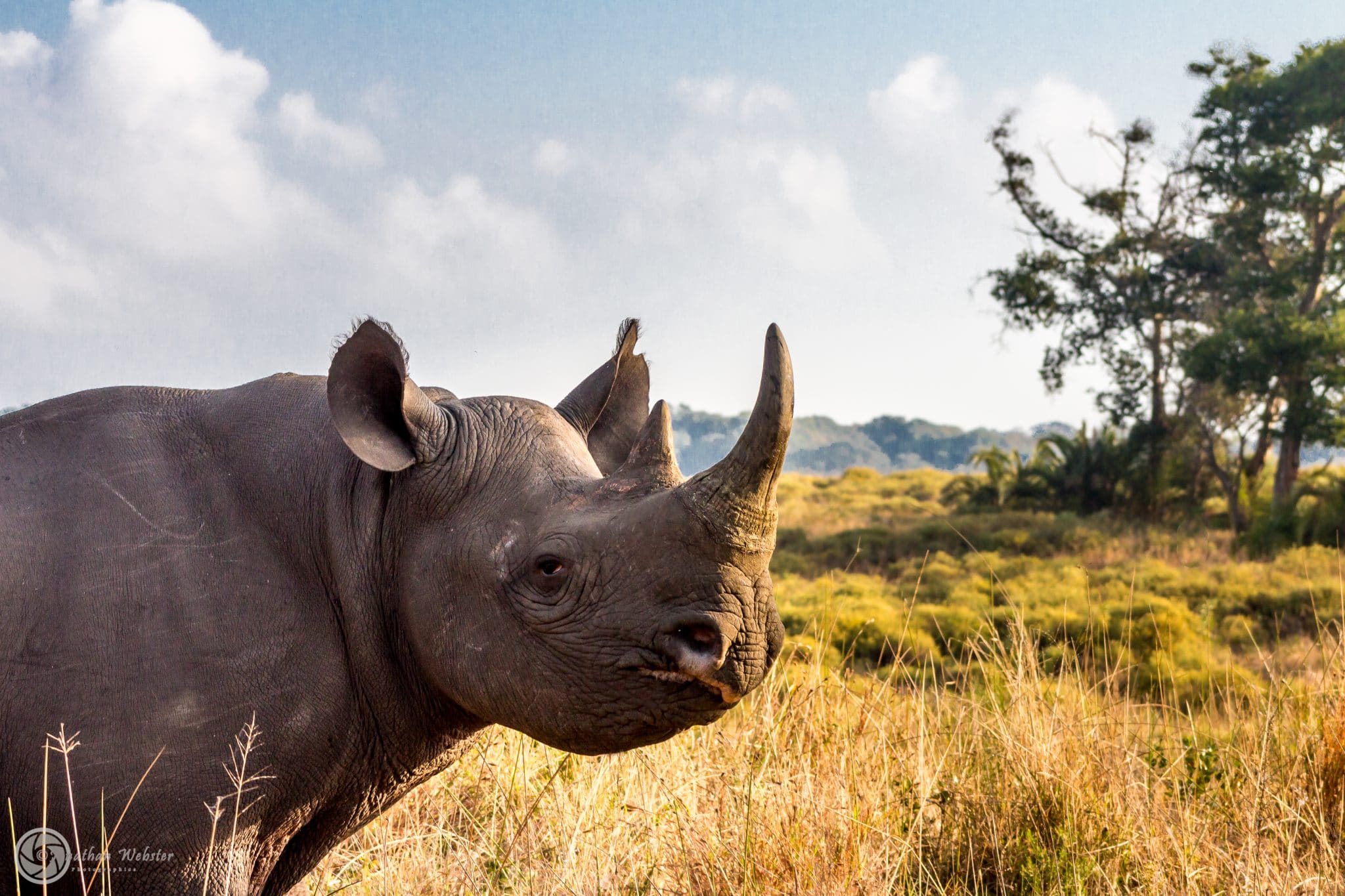Quick Facts - About South Africa
-
About South Africa
South Africa, located at the southern tip of the African continent, is known for its stunning landscapes, rich cultural diversity, and vibrant history. The country boasts a mix of bustling cities, vast wilderness, and beautiful coastlines along both the Atlantic and Indian Oceans. Famous for its wildlife and national parks, including the renowned Kruger National Park, South Africa is a top destination for safari enthusiasts. It is also celebrated for its cultural heritage, from the historic Robben Island where Nelson Mandela was imprisoned, to the colorful townships and diverse ethnic groups that shape its society. Economically, South Africa is one of Africa’s most developed countries, with key industries including mining, agriculture, manufacturing, and tourism. The nation’s varied cuisine, music, and arts reflect its multicultural population, making it a truly dynamic and fascinating destination.
-
South African's History
South Africa’s history is marked by a rich tapestry of indigenous cultures, colonialism, and a long struggle for freedom and equality. The region was originally inhabited by various indigenous groups, including the San, Khoikhoi, and Bantu-speaking peoples. In the 17th century, Dutch settlers established a colony at the Cape of Good Hope, followed by British colonization in the 19th century. These colonial powers imposed systems of racial segregation and control, culminating in the formal establishment of apartheid in 1948—a legalized system of racial discrimination and oppression. The apartheid era faced widespread resistance from Black South Africans and the international community, led by figures such as Nelson Mandela and organizations like the African National Congress (ANC). After decades of struggle, apartheid officially ended in 1994, when South Africa held its first democratic elections, electing Nelson Mandela as the country’s first Black president. Since then, South Africa has worked to heal divisions and build a more inclusive society, though challenges remain. The country’s history of resilience and transformation continues to inspire many around the world.
-
Adventures in South Africa
South Africa is a playground for adventure lovers, offering a wide range of thrilling activities set against breathtaking landscapes. You can embark on safaris in world-famous parks like Kruger National Park, spotting the Big Five — lions, elephants, leopards, rhinos, and buffalo. For outdoor enthusiasts, the Drakensberg Mountains provide excellent hiking, rock climbing, and breathtaking scenery. The Garden Route offers opportunities for kayaking, bungee jumping (notably at Bloukrans Bridge — one of the highest commercial bungee jumps in the world), and whale watching along the coast. Water sports such as surfing, shark cage diving near Gansbaai, and scuba diving with seals in Cape Town attract adrenaline seekers. The country’s diverse terrain also lends itself to mountain biking, zip-lining, and hot air ballooning. Whether you’re exploring wild savannahs, scaling mountains, or diving into the ocean, South Africa delivers unforgettable adventures for every traveler.
-
South African's Culture
South Africa is often called the “Rainbow Nation” because of its rich cultural diversity. It is home to 11 official languages and numerous ethnic groups, including Zulu, Xhosa, Sotho, Tswana, and Afrikaans communities, among others. This diversity is reflected in vibrant traditions, music, dance, and art. South African music ranges from traditional rhythms and chants to modern genres like kwaito and jazz. Dance and storytelling are integral to many communities, preserving history and values. Cuisine varies widely across regions, featuring dishes like braai (barbecue), bobotie (spiced meat casserole), and chakalaka (spicy vegetable relish). South Africans celebrate numerous festivals and ceremonies that honor their heritage, spirituality, and milestones. The country’s cultural richness is a source of pride and unity, offering visitors a unique opportunity to experience a tapestry of languages, customs, and creative expression.
-
South Africa's Economy
South Africa is the continent’s most industrialized and diversified economy. Key sectors include mining (gold, platinum, diamonds), manufacturing, agriculture, finance, and tourism. The country is a leading producer of precious metals and minerals, which play a crucial role in its export earnings. South Africa has a well-developed infrastructure and financial services sector, making it a regional economic hub. Despite its economic strengths, the country faces challenges such as unemployment, income inequality, and poverty. Tourism is a growing industry, fueled by the country’s natural beauty, wildlife, and cultural heritage. South Africa’s economy continues to evolve as it seeks sustainable growth and broader inclusion for all its citizens.
-
Essential Travel Tips for Tourists Visiting South Africa
Do's and Don'ts
✅ Carry a valid passport and visa (if required); check entry requirements before traveling.
✅ Use reputable transportation and tour operators for safety and convenience.
✅ Be aware of your surroundings and avoid displaying valuables openly to prevent petty crime.
✅ Stay hydrated and use sunscreen, especially when outdoors or on safari.
✅ Respect local customs and traditions, including greetings and dress codes.
✅ Learn basic phrases in English or local languages like Zulu or Xhosa to connect with locals.
✅ Take malaria precautions if visiting high-risk areas like Kruger National Park.
✅ Use bottled water and eat at reputable places to avoid foodborne illnesses.
❌ Don’t walk alone at night in unfamiliar areas to reduce risk of crime.
❌ Avoid discussing sensitive topics like politics or race in casual conversations.
❌ Don’t photograph people without permission, especially in rural or traditional communities.
❌ Avoid carrying large amounts of cash or unnecessary valuables.
❌ Don’t ignore park rules or safety guidelines during wildlife safaris.
❌ Avoid driving at night in rural or remote areas due to wildlife and road conditions.
South Africa Weather and Climate
South Africa has a varied climate due to its diverse geography. It generally enjoys a temperate climate, with four distinct seasons, opposite to those in the Northern Hemisphere:
Summer (December – February): Warm to hot, with occasional thunderstorms, especially in the interior.
Autumn (March – May): Mild and pleasant, with clear skies and comfortable temperatures.
Winter (June – August): Cool to cold, especially inland and at night; Western Cape gets rain.
Spring (September – November): Fresh, blooming landscapes and gradually warming weather.
Best Time to Visit South Africa
May to September (Dry Winter Season) is ideal for wildlife viewing in national parks like Kruger, as animals gather around water sources.
November to March is great for beach holidays, cape winelands, and coastal cities like Cape Town and Durban.
August to September is best for wildflower season along the West Coast.
Precautionary Measures for Tourists
Weather-Ready Clothing: Pack layered clothing as temperatures vary by region and season.
Sun Protection: The sun is strong even in winter—use sunscreen, sunglasses, and hats.
Health Safety: Malaria is a risk in northeastern areas like Kruger—take preventive medication if visiting those regions.
Water and Food: Tap water is generally safe in urban areas, but bottled water is recommended in remote locations.
Safety and Security: Be alert, avoid isolated areas at night, and keep valuables secure.
Driving: South Africans drive on the left—use caution if renting a car.
South Africa Currency – The South African Rand (ZAR)
The official currency of South Africa is the South African Rand, abbreviated as ZAR and symbolized as R. It is used nationwide and is divided into 100 cents.
Currency Details
Coins: 10c, 20c, 50c, R1, R2, and R5
Banknotes: R10, R20, R50, R100, and R200
Banknotes often feature images of Nelson Mandela and the “Big Five” wildlife animals.
Currency Tips for Tourists
ATMs: Widely available in cities, airports, and towns—Visa and MasterCard are commonly accepted.
Credit/Debit Cards: Accepted in most hotels, restaurants, shops, and tourist locations.
Cash: Carry small amounts of cash for tipping, markets, tolls, and remote areas.
Exchange: Foreign currency can be exchanged at banks, forex bureaus, and major hotels.
Always notify your bank before international travel to avoid card blocks, and be cautious when withdrawing cash at ATMs—use machines in well-lit, secure areas.









